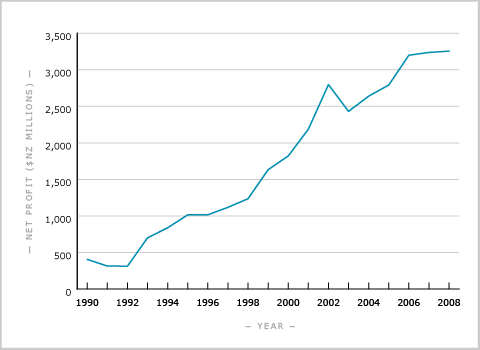
Banks are owned by shareholders, so the return on shareholder funds (equity) is an important measure of profitability. However, it is not the only measure, because banks have equity buttressed by lending by their parent banks. Between 1996 and 2005 the average annual return on shareholder funds after tax was 20.7%. Investing in a bank is regarded as riskier than lending to a bank, so returns are expected to be higher.
Because shareholder funds make up only a small proportion of total funds used by a bank (deposits provide most of those funds), a widely used measure of bank profitability is annual profit as a percentage of average total assets. This reached 1.4% in 2002, compared with 0.4% in 1992. The financial crisis of 2008 affected bank profitability – in 2008 banks reported aggregate pre-tax profits of $4.5 billion, 7% lower than in 2007. That made for a 0.89% return on average total assets.
Using this item
Te Ara - The Encyclopedia of New Zealand

This item is licensed under a Creative Commons Attribution-NonCommercial 3.0 New Zealand Licence
Source: Reserve Bank of New Zealand






Add new comment